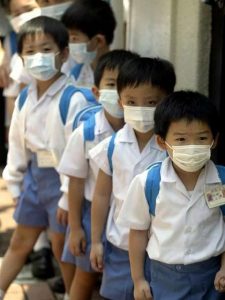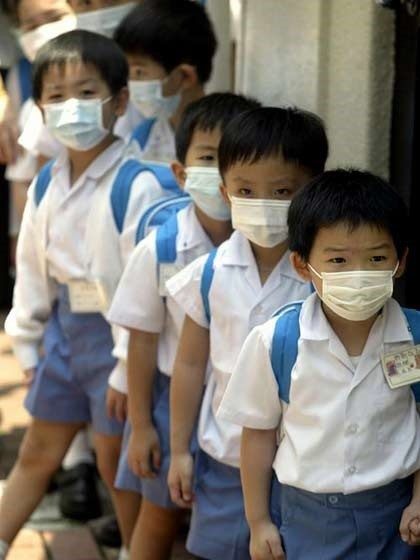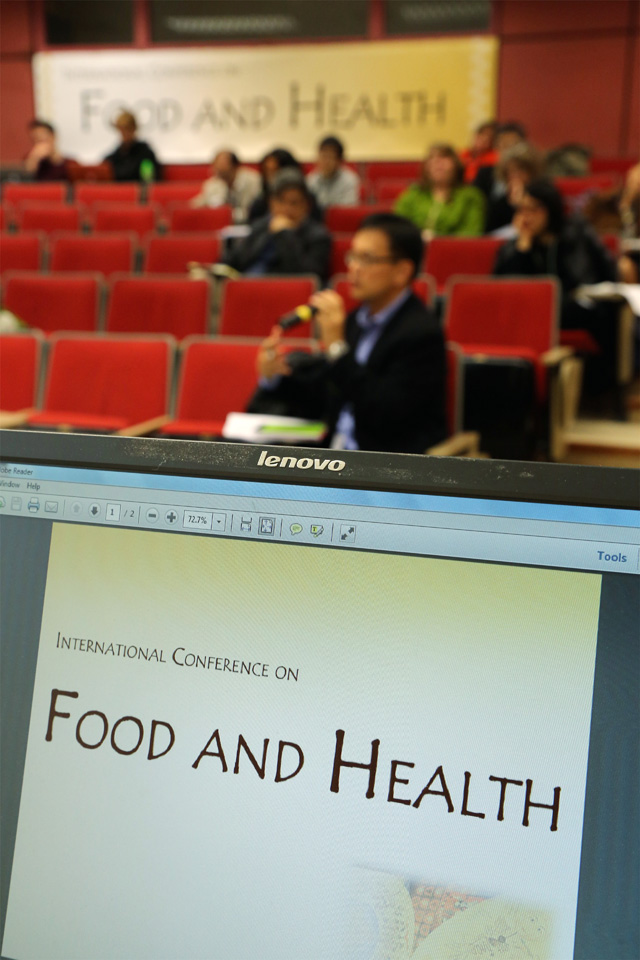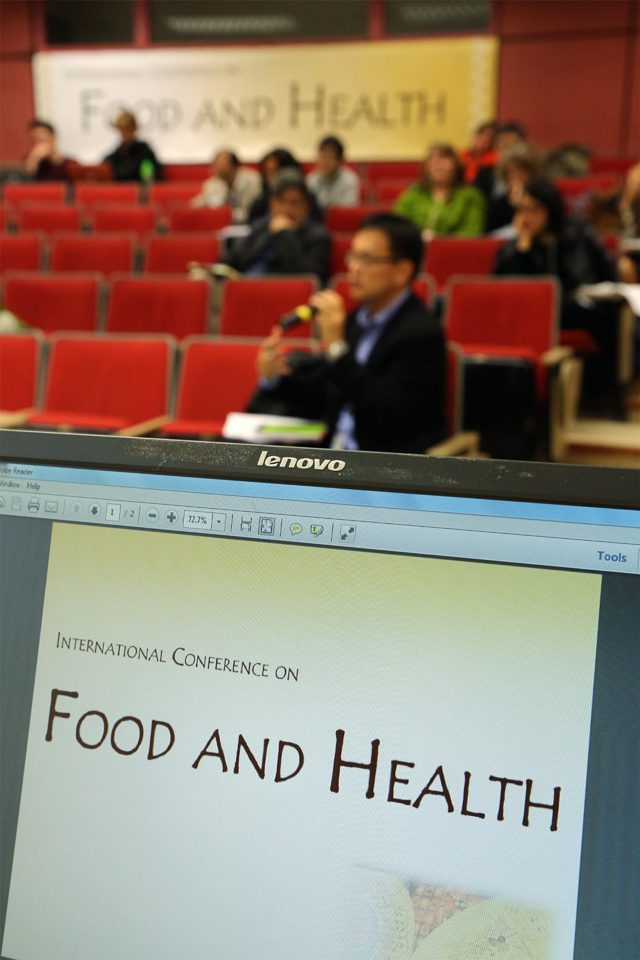- ABOUT IHSSABOUT IHSS
- PEOPLE
- NEWS & EVENTSNEWS & EVENTS
- RESEARCHRESEARCH
- FELLOWSHIPS & GRANTSFELLOWSHIPS & GRANTS
- TEACHING & LEARNINGTEACHING & LEARNING
- PUBLICATIONSPUBLICATIONS
Core members

Background
The study of science, technology, and medicine (STM) in the humanities and social sciences was given an important theoretical impetus with the emergence of the field of Science, Technology, and Society Studies (STS) in the 1960s. This new field of research has challenged deeply entrenched ideas about the autonomy of science and technology, encouraging the development of innovative cross-disciplinary approaches to the interplay between science-technology and social-political life — domains that were too often treated separately. These approaches have proven insightful, in large part because of their unique ability to capture the complexity of contemporary and historical intersections of knowledge, practices, machinery, and power. This research has questioned standard deterministic accounts of science, medicine, and technology, showing how society, culture, and political economy affect the making of scientific, medical, and technological structures, and how these, in turn, impact the shaping of society, culture, and political economy.

Background
The study of science, technology, and medicine (STM) in the humanities and social sciences was given an important theoretical impetus with the emergence of the field of Science, Technology, and Society Studies (STS) in the 1960s. This new field of research has challenged deeply entrenched ideas about the autonomy of science and technology, encouraging the development of innovative cross-disciplinary approaches to the interplay between science-technology and social-political life — domains that were too often treated separately. These approaches have proven insightful, in large part because of their unique ability to capture the complexity of contemporary and historical intersections of knowledge, practices, machinery, and power. This research has questioned standard deterministic accounts of science, medicine, and technology, showing how society, culture, and political economy affect the making of scientific, medical, and technological structures, and how these, in turn, impact the shaping of society, culture, and political economy.
Building Blocks
The STMS cluster builds on the foundation created by the research cluster “East Asian Medicine, Science and Contemporary Public Health”, co-directed by Professor Angela Ki Che Leung and Dr. Izumi Nakayama. This earlier cluster had organized a series of distinguished lectures, workshops and conferences, engaged in curriculum development, and worked closely with the Centre for the Humanities and Medicine of the School of Humanities and Medical School of the University to organize lectures and conferences.
Foci
The STMS cluster is interested in fostering Asia-focused research on these intersections, and concentrates on three overarching themes within the broad field of science, technology, and medicine:
Research is not confined to a specific historical period, but priority is given to the question of the formation of scientific, medical, and technological cultures in Asia from the 19th century to the present, with a special focus on East Asia. To avoid a Eurocentric notion of “Asia”, this cluster strives to restore the agency of Asian actors and networks in such historical processes. By highlighting at the same time the creative connections between Asian STM cultures, this research program aims at the theoretical de-centering of global debates on STM by going beyond the conventional comparison between the West and China, or the impact/response dichotomy. This includes facilitating conversations between scholars working on different parts of Asia and building a global network of institutions and concerned scholars. Research in this field will shed new light on the role played by STM in the making of modern Asian societies, and on how this process of appropriation of STM is embedded in broader socio-cultural and politico-economic dynamics.

The cluster includes researchers and research students from different parts of the world studying the question of Asian modernity through the prism of STM in the colonial period and beyond. While focusing on the recent past and on “the modern”, the cluster does not lose sight of “the contemporary”. What counts as “the contemporary” in 21st century Asia is not self-evident, and the cluster promotes research that seeks to capture the spirit of contemporary contingencies and frictions specific to Asian cultures. Confronted with increasing uncertainties about the future, the need to think about what is happening — what forms of life and what kind of societies are emerging — has never been greater. Nothing is more relevant to the understanding of the anxieties and hopes of contemporary societies than changes brought about by STM.

The cluster includes researchers and research students from different parts of the world studying the question of Asian modernity through the prism of STM in the colonial period and beyond. While focusing on the recent past and on “the modern”, the cluster does not lose sight of “the contemporary”. What counts as “the contemporary” in 21st century Asia is not self-evident, and the cluster promotes research that seeks to capture the spirit of contemporary contingencies and frictions specific to Asian cultures. Confronted with increasing uncertainties about the future, the need to think about what is happening — what forms of life and what kind of societies are emerging — has never been greater. Nothing is more relevant to the understanding of the anxieties and hopes of contemporary societies than changes brought about by STM.
Publications
Angela Ki Che Leung and Izumi Nakayama (eds.), Gender, Health and History in Modern East Asia, Hong Kong University Press, December, 2017. (Details)
[The book volume is originated from the Conference “The Making of ‘Asia’: Health and Gender” (2012) and the Workshop “Anatomical Modernity: Gender & Health in East Asia” (2013).]
Angela Ki Che Leung and Melissa L. Caldwell (eds.), Moral Foods: The Construction of Nutrition and Health in Modern Asia, University of Hawaii Press, October 2019. (Details)
[The book volume is originated from the Workshop on “Moral Foods” (2016), which was a follow-up workshop based on the International Conference on “Food and Health” held on December 16 – 17, 2014.]
Events and Activities
“Medicines Across Eurasia: A Digital Humanities Experiment” by Dr. Michael Stanley-Baker. (June 18, 2019) (Details)
“Living and Dying in Shanghai: James Henderson (1830 – 1865), Medical Missionary to China” by Dr. Li Shang-Jen. (October 24, 2017) (Details)
“Locating the Central Asiatic Expedition: Science, Business, and Foreign Intelligence” by Dr. Lukas Rieppel. (May 31, 2017) (Details)
“Revisiting Overpopulation in India: Demography, Research and the Population Problem in the Twentieth Century” by Dr. Cathryn A. Johnston. (April 18, 2017) (Details)
“Michurinist Biology and Its Recent Attempted Revival in Russia, China, Japan and Korea” by Professor Miklós Müller. (November 22, 2016) (Details)
“Starting-up Biology: BGI and the Making of Life in Shenzhen” by Professor Hallam Stevens. (October 26, 2015) (Details)
“The Perils of Pregnancy: Comparing Risk in Chinese and U.S. Advice Books and Websites” by Professor Suzanne Z. Gottschang. (December 18, 2014) (Details)
“The Rise (and Fall) of the Food-Drug Line: Classification, Gatekeepers, and Spatial Mediation in Food and Health Markets” by Dr. Xaq Frohlich. (November 12, 2019) (Details)
“Written in the Stars: Digitising an Astrological Archive” by Professor Lauren Kassell. (September 19, 2019) (Details)
“Popularizing Potatoes: Technology and Tradition in the Creation of a National Chinese Staple” by Dr. Jakob Klein. (May 30, 2019) (Details)
“The Birth of the Modern Global Script Regime: From the Typewriter to Unicode” by Dr. Raja Adal. (April 1, 2019) (Details)
“Hormones, Hospitals, and the Green Revolution: Thinking about Scientific Innovation and Health Care Models Using Mexico as the Pivot” by Professor Gabriela Soto Laveaga. (December 10, 2018) (Details)
“Culinary Colonialism and the Frontiers of Russian Food Cultures” by Professor Melissa Caldwell. (September 5, 2018) (Details)
“The Invention and Reinvention of Local Food in Japan” by Professor Eric Rath. (May 7, 2018) (Details)
“Politics and Scientific Change in Dynastic China” by Professor Dagmar Schäfer. (March 20, 2018) (Details)
“The Ethics of Mastery in Global Perspective: Skill and Trust among Artisans in Bangkok” by Professor Michael Herzfeld. (February 28, 2018) (Details)
“How History of Technology Can Point to New Forms of Innovation Policy — Two Indian Cases” by Professor Wiebe E. Bijker. (December 7, 2017) (Details)
“How Indigenous Industrialization Began in Postwar Taiwan” by Professor Chu Wan-wen. (November 23, 2017) (Details)
“Learning to Labor: ‘Student-laborers’ in the Age of Digital Capitalism” by Professor Pun Ngai. (November 2, 2017) (Details)
“Childcare Techniques, Cosmology, and Social Support in Southwest China” by Dr. Wang Ruijing. (January 17, 2017) (Details)
“Chao Yuen Ren and the Modern Soundscape of Republican China (1912 – 1937)” by Dr. Yeang Chen-Pang. (June 20, 2016) (Details)
The 10th Joseph Needham Memorial Lecture on “Needham’s Intellectual Heritage: Universality of Science with or without Civilization” by Professor Christian A. Daniels. (December 9, 2015) (Details)
“The Female Artisan: Gu Erniang and the Craft of Inkstone-Making in the Early Qing” by Professor Dorothy Ko. (November 19, 2015) (Details)
“Europe’s Infrastructure Transition” by Professor Arne Kaijser. (May 5, 2015) (Details)
The 9th Joseph Needham Memorial Lecture on “‘Men Plough, Women Weave’: Joseph Needham, Feminism and the History of Science and Technology in China” by Professor Francesca Bray. (December 9, 2014) (Details)
The 8th Joseph Needham Memorial Lecture on “The Growth of Chinese Civilisation: An Archaeo-metallurgical Perspective” by Professor Mei Jianjun. (May 8, 2013) (Details)
“Healing and Heritage: Sorting Out Ethnic Traditional Medicine in Southwest China” by Professor Judith Farquhar. (October 19, 2011) (Details)
“The Beriberi/jiaoqi (腳氣) Pandemic in Colonial Asia (ca.1840 – 1940): Meanings and Significance” by Professor Angela Ki Che Leung. (March 14, 2011) (Details)
“Stand Up Straight: Posture and the Meanings Attributed to the Upright Body” by Professor Sander L. Gilman. (January 14, 2011) (Details)
MMEA Sub-project Workshop on “Reproductive Labor and Gynocentric Technologies in East Asia, 1800s – 2000s”. (June 7 – 9, 2019) (Details)
MMEA Sub-project Workshop on “Making East Asian Foods: Technologies and Values, 19th to 21st Centuries”. (May 30 – 31, 2019) (Details)
MMEA Sub-project Workshop on “Weather, Climate, and Everyday Life: Environmental Technologies in Modern East Asia”. (May 16 – 18, 2019) (Details)
Plenary Conference on “Making Modernity in East Asia: Technologies of Everyday Life, 19th – 21st Centuries (MMEA)”. (December 10, 2018) (Details)
MMEA Sub-project Workshop on “Instruments, Meteorological Forecasting and Everyday Life Technology in China, Hong Kong and Japan, 1870 – 1950”. (August 27 – 28, 2018) (Details)
MMEA Sub-project Workshop on “Sociotechnical Systems of Pharmacotherapy in Modern East Asia, 1800 – 2020”. (June 23 – 24, 2018) (Details)
MMEA Sub-project Workshop on “Phones, Drones, and Disease: Epidemic Intelligence and the Future of Communication in East Asia”. (May 17 – 18, 2018) (Details)
MMEA Sub-project Workshop on “Technological Innovations and Social Change: the History of Automation and the Future of Work in East Asia, 1960s – 2010s” at HKUST. (May 11, 2018) (Details)
MMEA Sub-project Workshop on “Food Technology” (Hong Kong and Taiwan). (May 7 – 11, 2018) (Details)
Planning Workshop for the MMEA Sub-project “Transport Infrastructure and the Integration of East Asia from the 19th century to the present”. (March 28 – 29, 2018)
MMEA Sub-project Workshop on “Pharmacotherapeutic Technologies in Modern East Asia”. (December 11, 2017)
MMEA Sub-project Workshop on “Reproductive Labor and Gynocentric Technologies in East Asia, 1800s – 2000s”. (December 9 – 10, 2017) (Details)
Plenary Conference on “Making Modernity in East Asia: Technologies of Everyday Life, 19th – 21st Centuries (MMEA)”. (December 7, 2017) (Details)
HKIHSS-SOKENDAI Symposium “The Past, Present, and Future of Radiation and Everyday Technology in Japan and US in the 20th and 21st Centuries”. (February 21, 2017) (Details)
Advanced Training Workshop on “Humanities, Social Sciences and Medicine in East Asia: Medical Knowledge in Practice, Medical Practice as Knowledge” at Nankai University, Tianjin. (August 1 – 8, 2016) (Details)
Workshop on “Moral Foods”. (January 11, 2016) (Details)
Advanced Training Workshop on “Humanities, Social Sciences and Medicine in East Asia: Circulation of Medical Knowledge and Practices, Past and Present” at Peking University, Beijing. (August 10 – 17, 2015) (Details)
International Conference on “Food and Health”. (December 16 – 17, 2014) (Details)
Planning Workshop for the International Conference on “Food and Health”. (June 5, 2013)
Workshop on “Anatomical Modernity: Gender and Health in East Asia”. (June 3 – 4, 2013)
International Conference on “The Making of ‘Asia’: Health and Gender”. (March 9 – 10, 2012) (Details)
The D. Kim Foundation Workshop on “The Recent Works in the History of Science, Technology and Medicine”. (January 6, 2012) (Details)
Exhibition Preview of “Infrastructure Imagination: Hong Kong City Futures, 1972 – 1988”, in association with the Plenary Conference on Making Modernity in East Asia: Technologies of Everyday Life, 19th – 21st Centuries”. (December 7, 2017) (Details)
Screening of “Death by Design” (科技代價) followed by a dialogue with Director Sue Williams. (November 8, 2017) (Details)
“Challenge with Curiosity: Joseph Needham and his Intellectual Heritage” (好奇心與挑戰:李約瑟及其知識遺產) by Professor Mei Jianjun. (December 8, 2014) (Details)

Professor Angela Ki Che Leung, together with 15 local and overseas scholars in History, Anthropology, Architecture and Urban Planning, and in collaboration with HKUST, has obtained a total amount of HKD 6.626 million from the Research Grants Council of Hong Kong under its Collaborative Research Fund Scheme for a multi-disciplinary research project “Making Modernity in East Asia: Technologies of Everyday Life, 19th – 21st Centuries (MMEA)” for 3 years from June 2017 through May 2020.
The main objective of this project is to establish a new, interdisciplinary way of understanding East Asian modernity through the lens of everyday technology. It is about a history of East Asia that emphasizes the region’s technological dynamism in the last 200 years. It is also a study of planning, engagement, maintenance, resilience and innovation of technology. This project places technology at the center of twentieth-first century debates on the rise of a new East Asian world order. East Asia here is defined as a historically connected cultural region shaped both by Chinese cultural influence and western and Japanese colonialism in its most recent history. It is a field of interactions transcending simple political boundaries.
The project is run by a Management Committee composed of Angela Ki Che Leung as Principal Coordinator, and four co-PIs from HKU and HKUST, with supervision by an international Advisory Board. The project now consists of a number of sub-projects including food, pharmaceuticals, weather forecasting, gynotechnology, automation, and infrastructures, each with its coordinator and research network. Local collaborators meet regularly to brainstorm on main conceptual themes of the project and they meet the international collaborators and advisors in three annual plenary meetings organized in the winter of each of the three years. A virtual museum is being constructed to disseminate research ideas and output that will primarily be published in more conventional venues.
The STMS cluster will develop in the next few years with a rapidly growing teaching and research network that it is building with its CRF local and global partners. It will also make greater efforts in disseminating its research output to the wider community through its developing virtual museum on Asian technologies. Its ambition is to become a world-class research center for the study of Asian society and culture through the lens of evolving technologies, ideally as an Area of Excellence with both public and private support.
Copyright © 2025 Hong Kong Institute for the Humanities and Social Sciences, The University of Hong Kong. All Rights Reserved.
Error: Contact form not found.